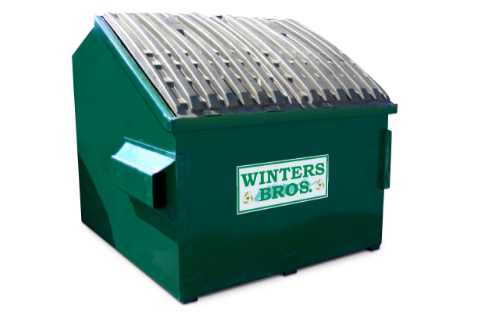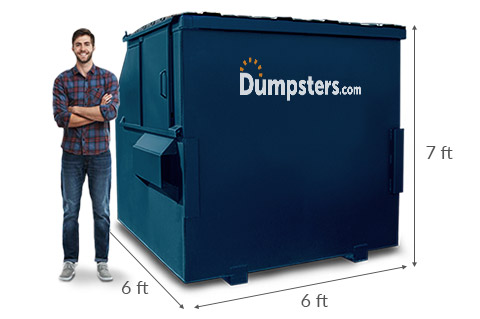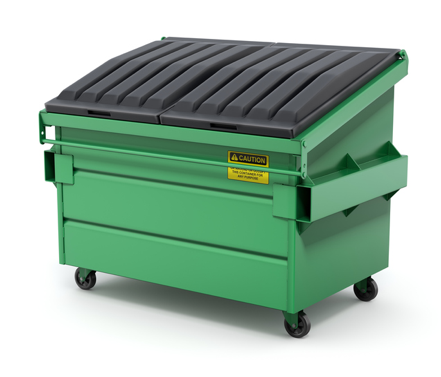When it pertains to dumpster rentals, making informed decisions regarding dimension, rental period, and contents is important to making certain a smooth and cost-efficient waste monitoring process for your project. Selecting the ideal dumpster dimension relies on the kind and volume of waste, while understanding rental period alternatives assists customize the period to your task's demands. Understanding what can and can not enter the dumpster is very important, and proper placement and accessibility are essential https://piedmonttriaddumpsters.com/dumpster-rental-mcleansville-nc/ for reliable disposal. Ultimately, budgeting for extra fees, such as overweight fees and gas additional charges, helps stay clear of surprise costs. By considering these key variables, you'll be well on your means to a successful waste administration strategy that meets your job's distinct demands.
Choosing the Right Dumpster Size
The appropriate dumpster size is important to guaranteeing an effective waste monitoring project, as it straight impacts the efficiency and cost-effectiveness of the whole operation. A dumpster that is also tiny can lead to frequent draining, leading to raised costs and logistical challenges.
On the other hand, a dumpster that is too large can be a waste of resources, taking up useful area and raising costs unnecessarily.
To figure out the right dumpster size, assess the range of your task, including the type and volume of waste to be produced. For small-scale projects, such as minor renovations or yard clean-ups, a 10-15 lawn dumpster might suffice. For bigger projects, such as construction or demolition, a 20-30 backyard dumpster might be necessary.
It's additionally vital to evaluate the weight capacity of the dumpster, as overloading can bring about added charges and security hazards.
Understanding Rental Period Options
With the ideal dumpster size in position, focus can currently move to the rental period, a vital aspect of the waste monitoring process This identifies for how long you'll have the dumpster on-site, and it's necessary to pick a period that lines up with your job's timeline. Generally, rental periods range from a few days to several weeks or even months.
When picking a rental period, think about the extent of your task, the quantity of waste you anticipate to create, and the frequency of waste disposal. For instance, if you're taking on a major renovation, you might require a longer rental period to fit the volume of debris.

On the other hand, a shorter rental period could be adequate for smaller jobs like spring cleaning or lawn job. Be sure to discuss your specific needs with your dumpster rental carrier to determine the suitable rental duration for your situation.
What Can Go in the Dumpster
As you prepare to load your dumpster, it's essential to understand what can and can not be taken care of in the dumpster to stay clear of any kind of problems or additional fees.
Generally, dumpsters can accommodate a wide range of materials, including building debris, home garbage, lawn waste, and also devices. However, there are specific items that are prohibited or call for special handling, such as hazardous waste, electronics, and batteries.
It's vital to talk to your dumpster rental service provider for specific standards on what can be thrown away in the dumpster. Some usual products that are not allowed include tires, asbestos, and fluorescent light bulbs.
Additionally, some products may call for special permits or handling, such as concrete or asphalt.
Understanding what can and can not go in the dumpster will certainly help you prevent any potential issues or fines.
It's also essential to follow the weight capacity and size restrictions of the dumpster to guarantee secure and reliable disposal.

Placement and Availability Matters
Beyond the what of dumpster contents, proper placement and accessibility of the dumpster itself are important considerations.
You'll intend to ensure the dumpster is positioned in an area that enables easy loading and unloading, reducing the danger of damage to surrounding property or obstruction of pedestrian website traffic. Suitable places commonly include driveways, parking lots, or designated construction areas.

Accessibility is likewise crucial, as you'll need to make sure the dumpster is conveniently available for waste disposal and pickup.
Avoid putting the dumpster in areas with low-hanging branches, power lines, or various other overhanging obstructions that might hinder pickup. Additionally, bear in mind local regulations and homeowners' association rules that may restrict dumpster placement.
Budgeting for Extra Fees
Determine your total project cost by considering additional fees connected with dumpster services. These fees can rapidly build up, making a significant distinction in your general expenses.
For circumstances, overweight fees can range from $50 to $100 per ton, depending upon the rental business and regional regulations. Realize that some firms might likewise charge added for fuel surcharges, shipment fees, or disposal costs for certain materials.
To prevent shock prices, ask your rental firm regarding any kind of potential fees in advance. Clarify their pricing structure and what's included in the first quote.
Additionally, think about the kind and weight of materials you'll be taking care of, as this can affect your general expenses. By factoring in these extra fees, you can produce a more accurate budget and avoid financial setbacks.